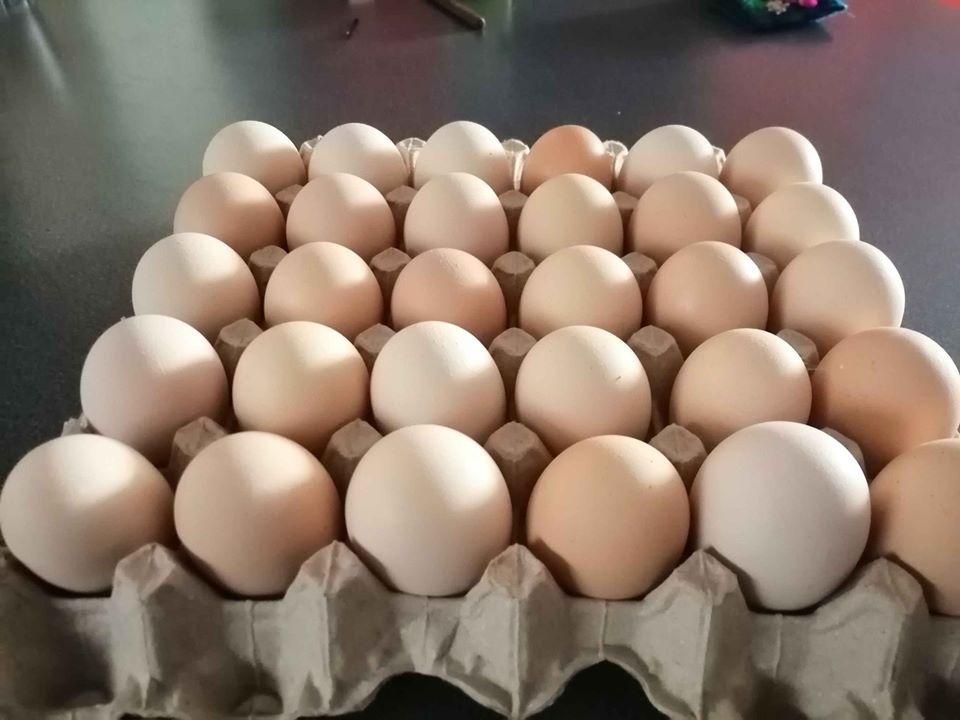|
0 Comments
Ordinary Eggs
The ‘ordinary carton’ of eggs at a grocery store consists of eggs laid by hens confined in battery cages. It means the hens only have the space of a single 8.5 x 11 sheet of paper. The Humane Society of the United States declares that these are some of the most abused animals in agribusiness. The Debate Cage-free vs. free-range eggs is a huge debate among millions in the United States. Many agree that hens should not be in tiny, confined spaces. Today many states have gone to cage-free and free-range chickens, and Bills are being passed nationwide requiring egg producers to give the hens more space. Cage-Free Eggs What difference does it mean to be cage-free for a chicken? The USDA regulates cage-free hens (these hens do not live in cages), but it does not mean they must live in a particular space area or even see the outside of a barn! It simply means that they live outside of a small cage.
Different Cage-Free Systems Cage-free hens tend to have different types of homes. Overall, they are fed the same feed on natural diet, cared for in the same way, live in cage-free homes, and get to roost, bathe and nest. Most people do not know that different cage-free systems exist on various farms, where some farmers go for multi-tier aviaries. These are similar to barns with multiple floors, allowing the chickens to go up and down different heights. Some have barn systems, including a large flock of hens getting an entire barn to themselves. They have food, water, perches, nests, and sawdust for scratching. They have about triple the space allocated to hens in battery cages. Hens do not have tight confinement areas because they can roam freely within a larger space than in a tiny cage. They get to exhibit natural behaviors. Free-Range Eggs The USDA also regulates free-range chickens. The hens must be given access to the outdoors, with regulations stating that chickens have entry to a screened-in porch with a minimum of two square feet of outdoor space per hen. It does not state that they have to go outside. Certain larger chicken producers take this to mean they can even have small paved patches of ground or open windows. For most farmers, free-range means the chickens can wander freely. Outdoor Access And Recreation Free-range chickens generally have actual access to the outdoors. They can roam freely in large enclosures and wander along pastures and farms. They can also hunt and peck for extra food. Some chickens hunt for their food throughout the day. Some farmers even provide hay bales and equipment to let the chickens create their own homes and recreation areas since they like to climb and bathe. Effects on Price One of the most significant differences between cage-free vs. free-range chickens is pricing. The cheapest eggs at the store are usually from hens confined in conventional (battery) cages, the least expensive method to produce eggs. There is not as much labor involved with this type of hen raising, and the hens do not eat as much. The bigger the space a hen has to live, move, and do their natural things, the more it costs to raise them. It means these eggs are usually more expensive to produce. So, Which is Better,- Cage Free vs. Free Range? Is there a real winner? The bottom line is that the titles are just the environment in which the hens are housed. The consumer does not know to what extent each farmer went to ensure that the living styles were ‘good’ for the chicken. The consumer will not know if they are making an ethical decision. The USDA also admits that no scientific data says there is any nutritional difference in the nutrition of the eggs that come from different housing situations. It is up to the consumer to decide which is best for their household. Cage-Free vs. Free-Range Stickers The Animal Welfare Approved logo is a white sun with blue rays over a green pasture. The AWA ensures that producers do not cut their chickens' beaks and do not starve their birds. Another well-known logo is the Certified Humane logo. Certified Humane bans the forced molting of chickens. Both of these logos ensure that chickens do have outdoor access. But, the one problem with logos and stickers is that they often will not tell you how the chickens are raised. These labels include natural, fertile, farm-fresh, and omega-3. Read the labels carefully before you decide which eggs to buy based on your ethical values. Other Types of Egg Production Pasture-raised eggs can also be found in many stores. If a label says pasture-raised, these hens usually have special living conditions. They must be placed on the ground or grass with vegetation for six hours daily. The USDA does not regulate them. They are given that designation by the Humane Farm Animal Care's Certified Humane program. The hens must have at least 1.8 square feet of indoor floor space each. They also must have four square feet of outdoor play each. Like other hens, they can also access nesting boxes and perching places. Hens produce organic eggs with specific diets. It means they were not fed any antibiotics. These hens must live in cage-free homes or free-range homes. They cannot be forced to molt for better production either. Where To Buy Most people buy their eggs at the supermarket, but if you want particular types of eggs, you might need to look at your local farmers' market or a nearby farm. Many times this means you know precisely how your eggs are made. You do not need to worry about cage-free vs. free-range eggs because you will have all the information right to help make your decision. Often, a local farm will rotate its cattle and chicken on the same land. It means the hens get to pick out their little bugs from the cow's manure. They bring essential nutrients and help the flies stay away. Many of these chickens get to eat insects and grass. It is unheard of in the land where chickens are raised in battery cages. These eggs may even have higher levels of omega-3 fatty acids. Many people swear cage-free, and free-range eggs even taste better.
Chickens go to the toilet when they sleep. Be prepared for your coop's roosting bar or area to get nasty. It must be cleaned regularly to avoid odor, rodents, and insects. Airborne bird waste is offensive and could make you sick. Tend to this task with a long-handled tool such as a hoe. Dirty nesting boxes can encourage your chickens to lay outside the box. Carefully review the laying boxes' conditions and remove any soiled bedding. Apply fresh bedding as needed.
Healthy, Happy Chickens Eggs will be developed and laid by the hen over 25 hours. Look carefully at the egg's condition for any malformations or color variations as you collect them. Shells with blood indicate that the hen may be under stress, such as suffering from bird lice. The chickens could lay oddly shaped or small eggs if your coop is overcrowded or stressful. If you find tiny eggs, do the egg float test, as these may be empty. Occasionally an egg will break inside the chicken, and her body will strengthen the break with additional calcium, which leads to a banded egg. Spotted eggs can be an sign of a poor diet. Continually monitor your chickens and eggs for signs of stress. If crowded, they may turn on each other and fight. Once a hen is injured, the other hens may attack and hurt her even further. Ensure your hens have quality food, plenty of space, and regular light in the winter.
For Emergencies - In an emergency, the first thing First Responders do is look for your identification. Having this PML information readily available could save your life.
Not Just For Emergencies - Keeping an accurate medication list is not just in case of emergencies. You should bring a copy of your medication list whenever you visit a physician. It is especially essential when you see a physician for the first time, as it will be most helpful in clearing up any possible confusion, especially for older patients with cognitive decline. Note: Many people overlook some medications prescribed by their physicians when creating the list. The drugs commonly overlooked include herbal medicines, patches, eye drops, inhalers, and birth control pills. It is crucial that you have these medications in your medication record. Moreover, it would be best to list each drug's brand name, generic name, frequency of use, and strength. Obtain your FREE ($0.00) Booklet, Instructions, and Form (excel spread sheet) that you can fill-out and update as needed. Keep a copy in your wallet or purse at all times. This is a free service brought to you by The Synchronicity Investor. Please inform your family and friends about “WHY YOU SHOULD HAVE A PERSONAL MEDICATION LIST.” The PML might save a life! Download from the BOOKSTORE NOW!
To have a healthy diet generally means avoiding additives. These additives also have a disagreeable taste, which is apparent to those who only eat natural foods. But if you frequently eat packaged foods, you tend not to notice the flavor because you are so used to it.
The next time you are in the supermarket, read the labels of the foods you pick up. You may be shocked. If ingredients have numbers rather than words, you can be sure these are chemicals. What could be so bad that a manufacturer would use a number to describe it rather than a word?
Store eggs with the pointed end down and the blunt, more rounded side facing up. Doing this will keep the yolk more centered inside the egg, helping to keep the egg fresh. Within the shell, an air bubble is located at the blunt end, and any air that enters the egg will enter through the blunt end and lodge in the air bubble. In storing eggs blunt end up, this pocket of air stays away from the yolk, which is far more likely to be contaminated by any bacteria that enters the egg than the non-bacteria-friendly white. Now you know!
|
Archives
May 2024
|










